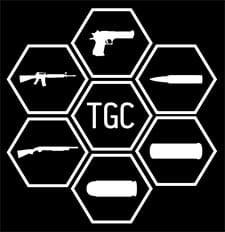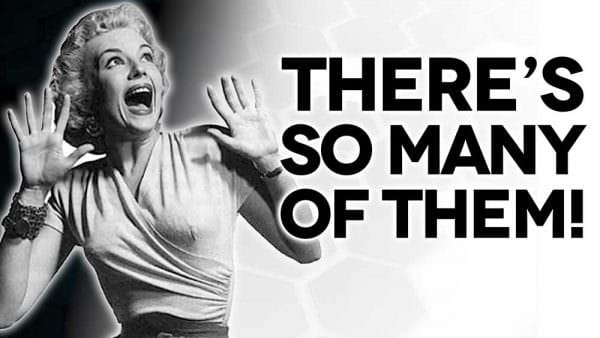
USA – -(Ammoland.com)- Welcome back to The Legal Brief, the show where we CRUSH the various legal myths and misinformation surrounding various areas of the gun world. I’m your host Adam Kraut and today we are talking about the different types of FFLs that one could have.
As you may remember from the recent video I did on who needs an FFL, where we discussed who needs an FFL when dealing in firearms, I mentioned that there were other instances where an individual or company could need an FFL.
There are actually nine different types of FFLs that exist.
9 types of Federal Firearms Licensees
The first type is the second most prominently issued license with over 56,000 active licensees as of 2015. A type 01 FFL is issued to individuals or entities who are engaged in the business in dealing in firearms other than destructive devices. So exactly the kind of license that we were talking about in the recent episode. This would account for a large majority of gun shops and kitchen table FFLs. These FFLs can buy and sell Title I firearms to customers, take firearms in on consignment, and perform gunsmithing services. And guys, I know I cover a lot of different technical terms, but if you have questions, like what a Title I firearm is, go check out the playlist on YouTube. For that answer you’d want the episode called National Firearms Act Explained.
Type 02 FFLs are issued to pawnbrokers. While it allows for the pawnbroker to do exactly what the Type 01 FFL to do, it does have another advantage to those who are operating as a pawnbroker. Unlike a Type 01 FFL, who can not dispose of a handgun to a non-resident of the state where the licensee is located, a Type 02 FFL can return a handgun to a non-resident who pawned it there.
Say Jon went to Florida and pawned a handgun for that jet ski he really wanted to buy. Unlike at a Type 1 FFL where he would have had to sell it to them, rebuy it and ship it back to an FFL in his state, at a Type 2 FFL he could have the firearm returned to him…assuming he could cough up the cash.
A type 03 FFL is for a collector of Curios and Relics. These are the most prevalent licenses available with over 60,000 active licenses as of 2015. These are granted to individuals who collect C&R firearms. We’ll cover those separately in a different episode.
A type 06 FFL is issued to a manufacturer of ammunition for firearms other than destructive devices or armor piercing ammunition. These licensees produce ammunition that is commercially available for you to purchase. You know the guy at the gun show who is selling his reloads. More often than not, that person is not licensed and based on the law and ATF’s position pertaining to being “engaged in the business”, they likely should be.
A type 07 FFL is issued to a manufacturer of firearms other than destructive devices. A type 07 can do everything a type 01 can in addition to actually manufacturing firearms. While not necessarily intuitive, ATF considers the mere assembly of parts to constitute manufacturing, if those parts are owned by the licensee. So, for example, if you as a licensee have an AR-15 lower receiver in your inventory and assemble the lower, you’ve just manufactured a firearm. Take a complete AR-15 lower receiver and attach an upper to it? Again, you’ve just manufactured a firearm and you would need to be a type 07 to do so. And this license specifies that they cannot manufacture a destructive device.
Destructive Devices covers a broad category of things but you can mostly think of them as anything that explodes, like a grenade. It does also include anything with a bore diameter greater than half an inch. This is why guns like the street sweeper and USAS-12 are now regulated as DDs rather than regular shotguns. And for those of your scratching your heads wondering why most 12 gauge shotguns are not DDs, the definition excludes shotguns the secretary finds particularly suitable for sporting purposes. Like your duck gun.
The last four license types are the least common. Those include the type 08 Importer of Firearms Other Than Destructive Devices or Ammunition for Firearms Other Than Destructive Devices, or Ammunition Other Than Armor Piercing Ammunition, the type 09 Dealer in Destructive Devices, the Type 10 Manufacturer of Destructive Devices, Ammunition for Destructive Devices or Armor Piercing Ammunition and the Type 11 Importer of Destructive Devices, Ammunition for Destructive Devices or Armor Piercing Ammunition.

As you may have guessed, the Type 08 allows for the importation of firearms which are not destructive devices, the importation of ammunition for firearms which are not destructive devices or the importation of ammunition which is not armor piercing ammunition. So to import things that don’t go kaboom and aren’t armor piercing, you need a type 08 license.
The remaining three license types deal with destructive devices. As of 2015 there were only 66 licensees in the entire country which were licensed to deal in destructive devices. Given that most people aren’t buying destructive devices, this isn’t really surprising. There were far more manufacturers of DDs or their ammunition and importers of DDs and their ammunition than actual dealers. As it is likely most of the sales are for law enforcement and military, the lack of licenses isn’t necessarily unexpected.
As you may have noticed, we did not cover Special Occupation Taxpayers or SOTs in this episode, for instance the ultra common 07/02 (the 02 being related to the SOT) but we’ll talk more about them in the future when we discuss dealing in NFA firearms.
Hopefully that gives you a better understanding of the different types of FFLs that are out there. If you guys liked this episode, you know what to do, hit that like button and share it around with your friends. Have a question you want answered on this show, head over to The Legal Brief section on theguncollective.com. Don’t forget to like The Gun Collective on Facebook, Instagram, YouTube, Full 30, Snap Chat and wherever else you can catch us on social media.
And as always thanks for watching!
Links for this episode:
- 18 U.S.C. § 923 – Licensing : https://www.law.cornell.edu/uscode/text/18/923
- 27 C.F.R. § 478.41 – Licenses | General : https://www.law.cornell.edu/cfr/text/27/478.41
- 18 U.S.C. § 921 – Definitions : https://www.law.cornell.edu/uscode/text/18/921
- 27 C.F.R. § 478.11 – Definitions : https://www.law.cornell.edu/cfr/text/27/478.11
- Pawn Broker FAQS – ATF Guide P. 207 K2 : https://www.atf.gov/firearms/docs/guide/federal-firearms-regulations-reference-guide-2014-edition-atf-p-53004/download
About The Gun Collective
The Gun Collective is dedicated to bringing you the highest quality, fast paced gun content possible. Started in June 2015 by Jon Patton, TGC has rapidly taken off to become a go-to source for the things you need to know without a bunch of BS. Please check out TheGunCollective.com to learn more and see what the hype is all about!
